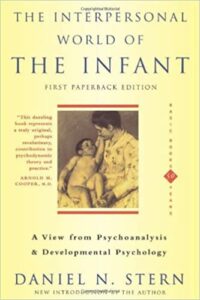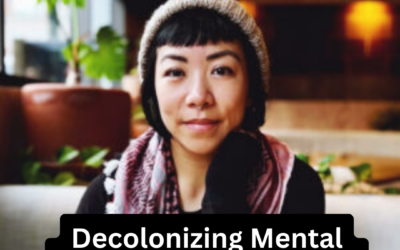Podcast: Play in new window | Download (Duration: 15:27 — 10.6MB)
Subscribe: Apple Podcasts | Spotify | Amazon Music
 Overcoming fear to gain connection.
Overcoming fear to gain connection.
There is hope for us all – no matter your attachment history, there is hope for change with relationships when we conquer our fear.
In this episode, Sue Marriott LCSW, CGP shares a specific case about an awkward goose named Felicity. She first heard Feli in a paper entitled A Felicitous Meeting of Attachment and Relational Psychotherapy Daniel N. Stern. The original article was written by H Fischer-Mamblona, both of which are linked in the Resource section. This has been a helpful story to some who feel rather awkward themselves.
We hope you enjoy the story, thank you for your incredible work Dan Stern.
About On the Evolution of Attachment-Disorder Behavior by H Fischer-Mamblona
Using an example of a goose which grew up in complete isolation, this article shows how escape behaviour increases through all its developmental steps by lack of a sufficient secure primary attachment object. If a gosling has no mother, its fear influences wide parts of its behaviour and blocks the capacity to approach another animal in order to form a new attachment. But the urge for attachment is still alive and provokes strong conflicts between this urge and fear. In these situations displacement activities and apathy occur–attachment-disordered behaviour. Under partly artificial circumstances, a change to ‘normal' attachment behaviour took place by reduction of escape motivation, which enabled the goose to accept her brood. From this moment on the attachment-disordered behaviour, the displacement activity and the apathy disappeared. Implications to human behaviour are drawn–a comparison between displacement activity and neurotic symptoms, the state of apathy and personal disorder. A synthesis of ethological and psychoanalytical models concerning etiological and therapeutic aspects is discussed. Fear and attachment, not aggression and sexuality–our ‘animal heritage'–are the primary factors which influence our development. The balance of fear and attachment is the basis for a healthy or unhealthy development of social relationships. This applies to social living animals as well as to humans.
Find more content on the relational sciences at https://therapistuncensored.com/episodes
TU 117: Resilience and Trauma with Dr. Bruce Perry
 Daniel N. Stern wrote The Interpersonal World of the Infant: A View from Psychoanalysis and Developmental Psychology, which challenges the traditional developmental sequence as well as the idea that issues of attachment, dependency, and trust are confined to infancy, Stern integrates clinical and experimental science to support his revolutionizing vision of the social and emotional life of the youngest children, which has had spiraling implications for theory, research, and practice.
Daniel N. Stern wrote The Interpersonal World of the Infant: A View from Psychoanalysis and Developmental Psychology, which challenges the traditional developmental sequence as well as the idea that issues of attachment, dependency, and trust are confined to infancy, Stern integrates clinical and experimental science to support his revolutionizing vision of the social and emotional life of the youngest children, which has had spiraling implications for theory, research, and practice.

Resources:
On the Evolution of Attachment-Disorder Behavior – H Fischer-Mamblona
The Interpersonal World of the Infant: A View from Psychoanalysis and Developmental Psychology by Daniel N. Stern – Amazon | Bookshop.org
A Felicitous Meeting of Attachment and Relational Psychotherapy – Daniel N. Stern
Haven't gotten enough of the rich content from Therapist Uncensored?
TU31: Attachment on a Spectrum – Navigating Adult Insecurity and Security















